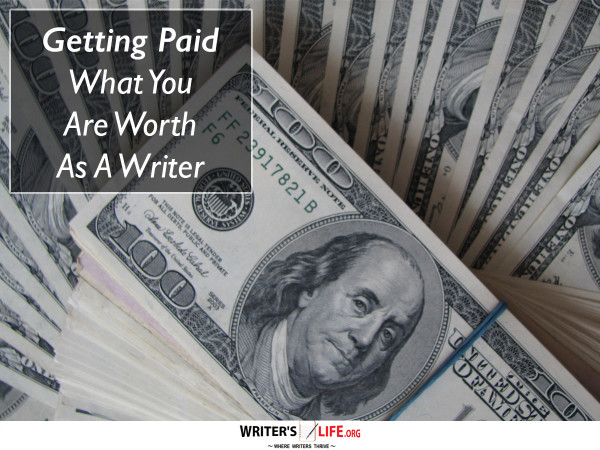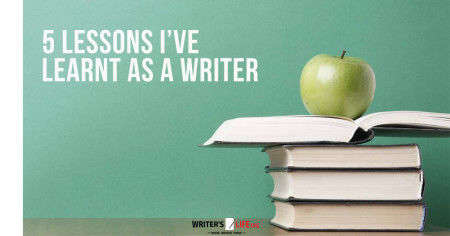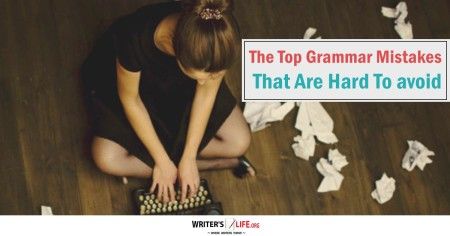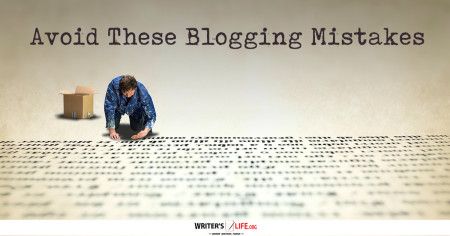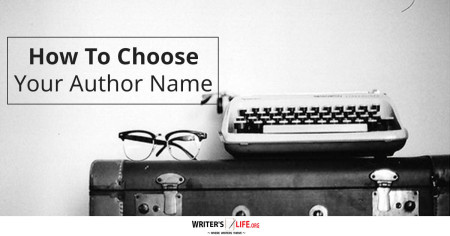- How To Tackle Jealousy In Creative Writing
- Common Submission Mistakes
- How To Stop Your Blog Becoming Boring
- The One Thing Every Successful Writer Has In Common
- How To Make Yourself Aware Of Publishing Scams
- Why Almost ALL Writers Make These Grammar Mistakes At Some Point
- 5 Tips For Authors On How To Deal With Rejection
- Top Mistakes to Avoid When Writing a Novel
- How to Avoid Common New Writer Mistakes
- 10 Mistakes New Fiction Writers Make
Why Publishing Your Book For 99 Cents Might Not Be a Good Idea!
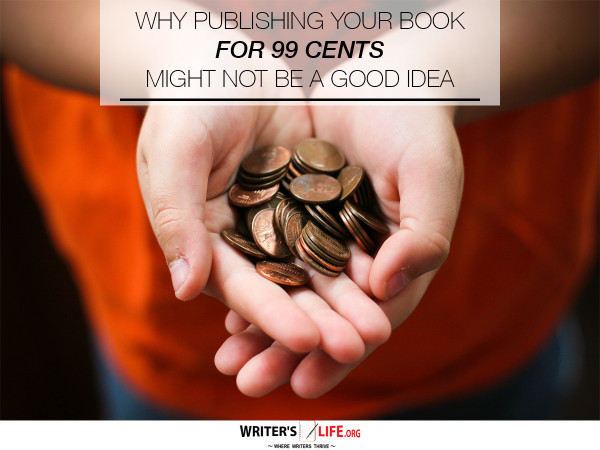
Share, Pin or Retweet If You Love Writing!
This post was intended to be a comment on Joanna Penn's recent article explaining why she chose the 99-cent price point for her novel. My thoughts are directed at a comment she posted rather than the article itself. But my thoughts on the issue were extensive enough that I decided they deserved their own post. I think I should say up front that I have nothing against Penn or her decision on e-book pricing and nothing in this post is meant to be a personal attack. I've read the blog on and off and have been aware of her for quite a while because she has a strong presence in the writer community in general. And I have no reason to think she had any ill intentions whatsoever.
That said, in a comment she mentioned two things that are pretty big pet peeves of mine when it comes to advice and insights I frequently see shared with new indie authors regarding e-books.
So first, here is Penn's comment that I want to respond to:
Hi Adam,
as briefly mentioned above, you’ve got to think about the actual income for the book, not per sale.
John Locke is selling a book every 7 seconds for 99 cents each, so the return is not 99 cents, but thousands – and check out Konrath’s numbers. You are not getting 99 cents for your hard work, you need to multiply that by your sales FOREVER! These books never go out of print.
Note: This post is not me telling you that you shouldn't price your e-book at 99 cents. What any other author chooses to charge is of little concern to me. If you can responsibly do the market research and 99 cents feels like the right price to you in that it will cover the cost of contractors, production, and the value of the time invested and continue to earn beyond that, then go for it. If you're more than happy to attract hoarders in addition to real readers because you'll take any dollar given to you with a grin, then again, go for it. If you're publishing your e-book as a hobby and are in it for the joy of it or to get your creative juices flowing, and you don't care much about the money, go for it. Not all authors are looking for the same thing, and it's up to you to decide what to price your e-books. (If you want to read more on the 99 cent pricing debate, you can take a look at our past interview with Zoe Winters about it and the resulting discussion.)
The comment left me with two different concerns beyond the usual 99 cent rate debate:
- Stories of exceptions are mentioned as though they're the rule. This is a much wider concern I have about what new indie publishers are told to expect than just Penn's comment.
- There's an implication that because there's no limiting print process, the lifespan of an e-book is indefinite (in theory, okay; in practice, not so much).
But So-and-So Made $X,XXX,XXX...
Your average indie author is not Locke, Konrath, or Hocking. Nor do most have Penn's existing platform. There will be exceptions to every rule. And there will be countless who follow expecting to be the next, and most of them will be disappointed if that's the level of success they're hoping for. This happens every time the "next big thing" comes around in pretty much every industry, especially on the Web.
That's not to say a brand new indie author should expect that they won't succeed. But there are different levels of success. If you have the existing platform with a built-in demand for your e-book in the five figure range, that's awesome! You can price low and still expect to earn quite a bit through your book. If you have a solid readership from past book sales (with or without a traditional publisher's backing) that's great too. But most first-time authors I meet who are considering e-publishing because of all of the hype around Amazon don't have these things going for them. And there's something I tell my audience of writers on the freelance side regularly that I think needs to be repeated here:
Never expect to be the exception to the rule.
Yes, you can succeed in indie publishing. People have been doing it for decades and that doesn't look like it's going to stop any time soon. But you need to keep your expectations reasonable given what you have to work with on an individual basis, and you need to be prepared to work your ass off. Pricing alone will not carry most books. There's a reason pricing is just one aspect of the larger marketing mix (one of the classic "4 Ps").
When a new tactic is tried, there will usually be successes for the early birds. But eventually you run into the issue of saturation where you need to work even harder to make someone else's previous tactics work for you. It's not impossible, but there's much more to it than "So and so made a bundle this way, so I will too."
My own preference is to look at the long-term market realities given my specific target markets. And yours will likely be different buyers with different expectations and available in different numbers. Writing in a huge niche means you might be able to get away with low pricing indefinitely or as a lead-in tactic because you can sell a large number of copies. If you write for a relatively small niche, you can't assume that you can mimic the success of someone appealing to a much broader audience by doing the same things. This is why "information product" e-books can be extremely profitable and sell well in their niches for several times your typical book price -- niche markets are well-targeted. Just as that high price strategy won't likely work for most novels, the low-ball option won't automatically work for you either.
Do you really want to know if 99 cent e-book pricing could be a good option for you? Then please, please, please do the research first and go beyond the "so-and-so" stories. Look at typical conversion rates of major online retailers like Amazon. Install analytics tools that will let you track conversions of visitors to your site who click links and even bother to visit your e-book's page on Amazon.com. And remember, their more than 20% overall conversion rate -- based on 2009 stats -- is sitewide and includes people who visit already knowing what they want. Yours will depend on how many targeted buyers you can actually get to your page in the first place.
Saying "there are three million people who might have an interest in my book" doesn't cut it. How many of them can you really reach? Now how many of them can you get to your sales page (on Amazon, another bookstore, your own site's sale page, etc.)? Now you can try to estimate conversions. If you have no audience waiting on you and you don't have solid marketing and PR skills, that initial reach can severely limit your success. You can hope against hope that because X, Y, and Z did it that you will too. Or you can be realistic about the things that helped them -- existing audiences, timing, etc. -- and you can figure out the best way to sell your book, understanding it likely won't be the same as theirs.
If you are writing books you might want to look at Our online Webinar called “How to Get Published, Sell Books & Attract Tens of Thousands of Readers by Selling Your Content on Amazon’s Kindle” CLICK HERE! It takes you through then entire process from devising the content, to scheduling writing to formatting, proof-reading and marketing.
Yes, E-books Go "Out of Print"
It's also important to remember that e-book sales do not go on forever. E-publishing is not new. Most e-books sold successfuly five years ago seem to have dropped off the face of the earth now with a few exceptions (Aaron Wall's SEOBook being one example, although I believe even that is only available through a subscription service now).
There is an equivalent to being out of print that many newer e-publishers don't seem to understand early on. Word of mouth is great, but it doesn't last forever with no further effort on your part. When you stop marketing, your books eventually will stop selling.
Most e-book authors I know who have been at this for years either cease to update their products (in nonfiction e-books where it's often vital) or they move on to other e-books or projects that can bring in even more money. Product A borders on death as soon as it's no longer a sensible business decision when compared to investing the same time and resources in the profit potential of Product B.
Will there be exceptions? As always, yes. Some people will build a huge name for themselves and appeal to such a large audience that their e-books will continually sell for many years to come (or until the next interesting technology comes along and they don't want to bother to upgrade their past work). But again, it's not smart to expect to be the exception. You should prepare for the long-haul instead of assuming sales will continue to accrue indefinitely.
This argument is very much like one that has taken place for years on the freelance side of the writing profession. In that case it revolves around residual earnings sites. Writers would claim it was okay that they weren't paid up front because they could earn even more by letting their articles sit on these sites for years. Some had more foresight and found more productive uses of their time. A few were the exception and made out really well with them. And others sat by surprised when these residual earnings sites closed down, were sold off, or had payment models changed. Why? The market became saturated. There were too many sites doing the same thing. There weren't enough ad dollars to support them all anymore. There were quality issues associated with them that hurt the larger brands. Things had to change.
And things will also change in indie publishing. They usually do when people start thinking more about the long haul than what might work right now. I think the problem now is that a lot of people talking about indie publishing and e-books specifically haven't figured out the long haul yet. Those who came in with the Amazon e-book boom are still relatively new to e-publishing. And there is absolutely nothing wrong with that. I think the success some have seen is both admirable and inspirational. But those who have been at this a while know that "forever" isn't as long as we might like it to be when it comes to e-book sales. You either release new products or you update your existing product or marketing plan to attract new readers.
It can be an "update or die" type of work, and sales do thin out over time. That's why people keep releasing more. You can count on continuing sales as long as you continue to write. But counting on an e-book to indefinitely bring in income and using that to convince people to price extremely low? That's when I get really concerned about what new indie authors are are taught before making the leap for themselves.
It's one thing not to be concerned about the money as an indie publisher. If you can say that, then that's wonderful for you. But it should be a pretty big consideration when making the case of low pricing to other indie authors while on the other hand also justifying it with third party stories of financial success. Is more money the reason to do it? Or that you don't care about money right now and are happy with the long-term trickle-in at a lower price point? I don't see how you can make a logical case for something based on those two extremes. I have to imagine the reality for most falls somewhere in between.
Would you like to make a living as a freelancer? Then you might be interested in the Writers Life Get Paid to Write Course that can help you find the richest sources of writer's income as well as teach you sought after skills and how to market yourself so that you attract high paying clients.
This post by Jennifer Matter was published with the title Revisiting 99 cent E-book Pricing at http://allindiewriters.com/revisiting-99-cent-e-book-pricing/.



